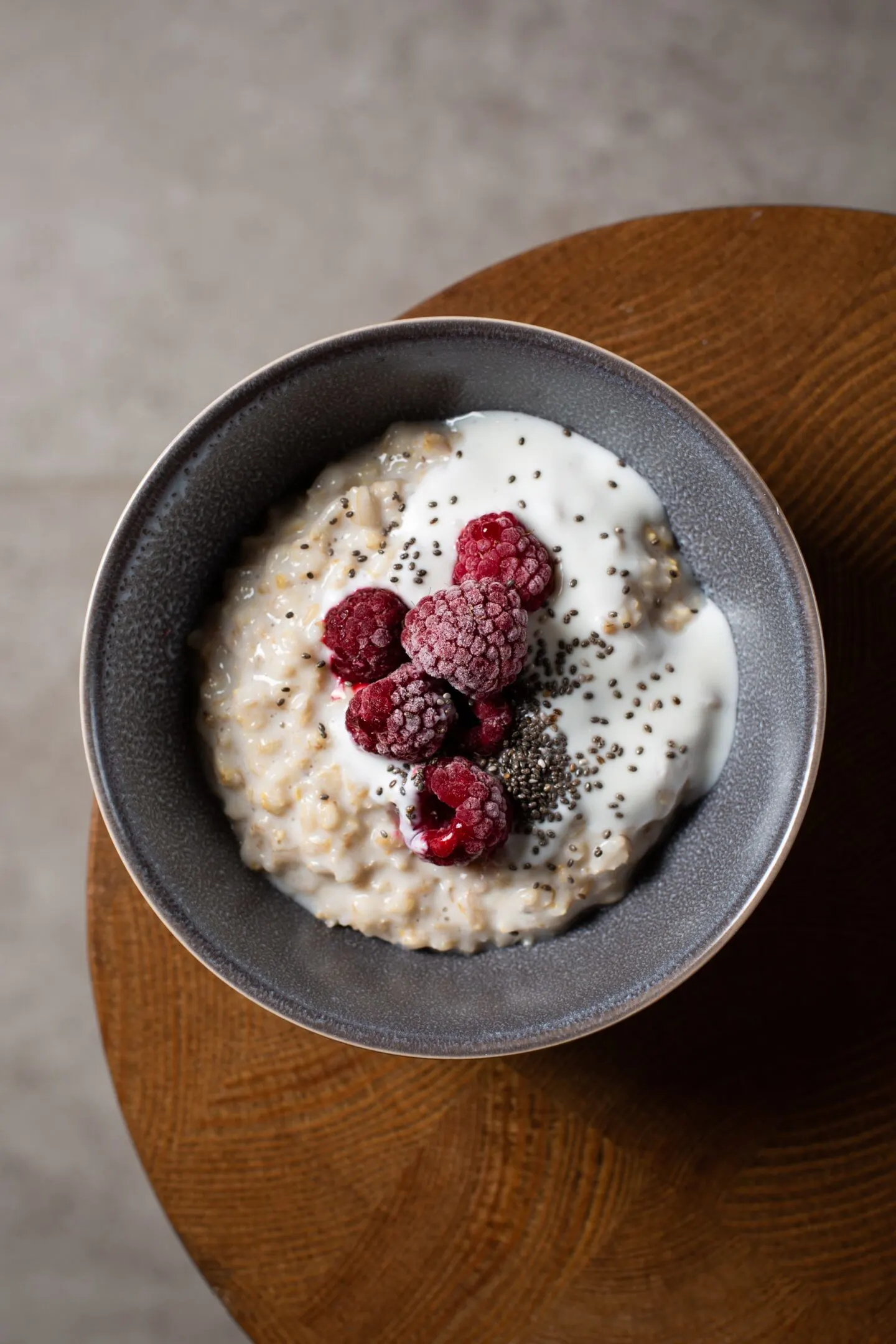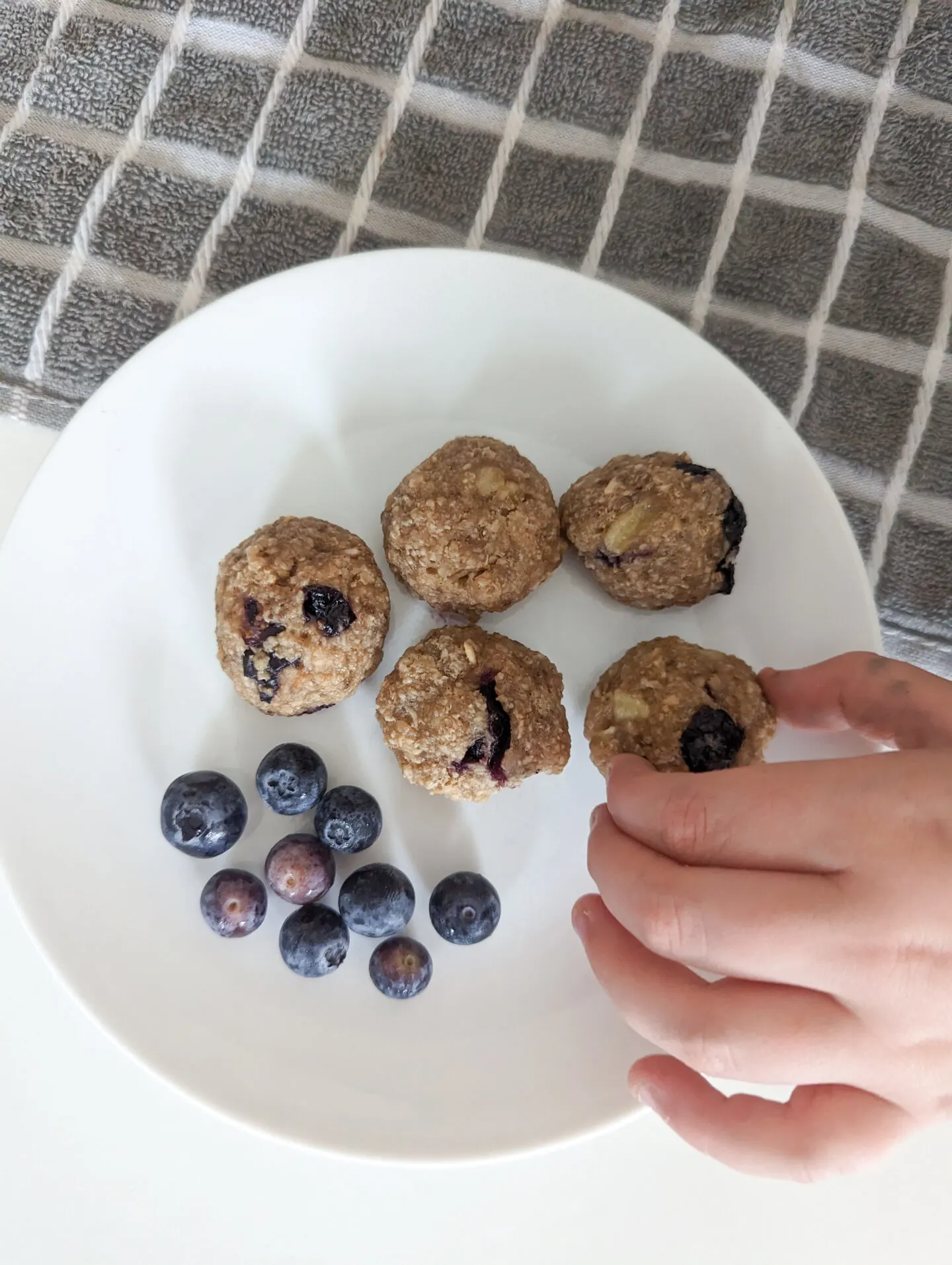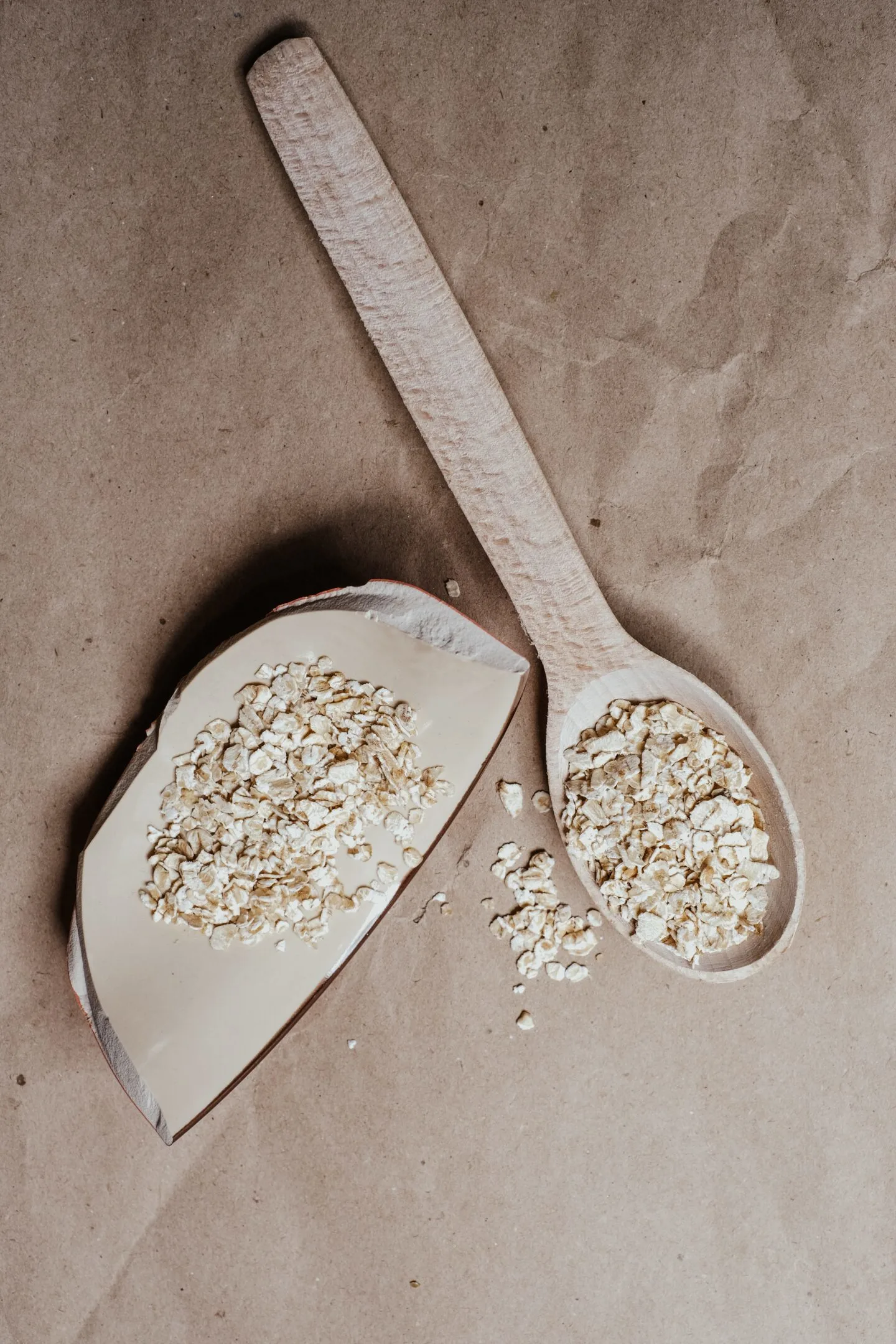We’ve all heard that oatmeal is often recommended as a first food choice for weaning babies, but the market and advice online can cause some real confusion when it comes to what’s best for babies. Baby oatmeal vs regular oatmeal is a common query, so what is the difference between the two varieties?
The only difference between these two varieties of oatmeal is the texture. Baby oatmeal is refined and made to be smooth, whereas regular oatmeal isn’t specifically formulated for babies as it is thicker and lumpier.

Introducing Solids: Everything You Need To Know About Oatmeal
Whether you’re planning on taking the baby-led weaning approach to introduce solids, or you’re looking for smooth textured foods to spoon feed – or even a mixture of both – oatmeal is a food choice that comes up frequently when scouring the internet for yummy first foods to try. Now we know the differences between baby oatmeal vs regular oatmeal, it’s time to find out if this commonly suggested first food is safe and healthy for babies, as well as take into account other considerations:
- Is it safe for babies to eat oatmeal?
- Health benefits of eating oatmeal
- Is regular oatmeal safe for babies?
- Can you make baby oatmeal from regular oatmeal?
Let’s take a look at each query in turn.

Is it safe for babies to eat oatmeal?
It is 100% safe for babies to eat oatmeal. In fact, most baby oatmeals are purposely designed to fulfil growing babies’ appetites. Once your child has reached the 6 months milestone, you can start to slowly introduce solid foods, including oatmeal-based recipes. When considering baby oatmeal vs regular oatmeal, both variations should be added to your baby’s diet as part of a balanced regime; and remember that both variations of oatmeal offer the same health benefits.
Health benefits of eating oatmeal
Regardless of the frequently searched debate surrounding baby oatmeal vs regular oatmeal, there’s one thing for sure: oats and oatmeal are packed full of health benefits. Both varieties of oatmeal offer the same health benefits, including natural fibres, vitamins, minerals, and antioxidants.
Oatmeal is packed with healthy carbohydrates and a special form of fibre that is particularly beneficial for gut and immune health. Regardless of baby oatmeal vs regular oatmeal options, both are great sources of zinc, which supports a baby’s immune system, taste, and smell. Additionally, many of the nutrients and minerals that are present in oats help to foster bone development and neurological functions.

Is regular oatmeal safe for babies?
As mentioned earlier in this post, in the great baby oatmeal vs regular oatmeal debate, the only real difference is the texture. Regular oatmeal is absolutely fine for babies to eat and is actually a fantastic way to expose them to more varied textures, such as slightly lumpier mouthfuls. When choosing which regular oatmeal to feed your baby, ensure that you look out for any added sweeteners and avoid these as babies do not need any additional sugar in their diet.
Can you make baby oatmeal from regular oatmeal?
When thinking about baby oatmeal vs regular oatmeal, the underlying difference is the texture. For some, the lumpier texture of regular oatmeal may be just what your baby likes. However, for others, the smoother texture of baby oatmeal may be preferred. In this case, you may be pleased to hear that it is possible to use regular oatmeal to create your own, cheaper version of baby oatmeal.
In order to make smoother oatmeal using regular oatmeal, simply measure out your desired portion size of oats and pulse them in your food processor for 15 – 30 seconds. The oats will become powdery; from there you can store them in an airtight container.

Are oats a common allergen?
Oats, no matter if they’re baby oatmeal vs regular oatmeal, are not common allergens, although reactions to oats have been reported. Oats and products that contain oats can be a common trigger for food protein-induced enterocolitis syndrome – also known as FPIES. FPIES is a rare and delayed food allergy to food protein which causes sudden vomiting and diarrhoea. If your baby has been diagnosed with celiac disease, make sure you read the product labels and opt for certified gluten-free oats. Despite oats being naturally gluten-free, many oats and oat products can be cross-contaminated with grains that contain gluten, such as wheat, rye, and barley.
Is oatmeal a choking hazard?
No, oatmeal does not pose a particular risk of choking, although every child is different and, in theory, any food can be a potential choking hazard. Other foods, such as baked goods including oat cookies or granola could certainly pose a risk. In order to minimise the risk of choking, offer small bite sizes chinks and always make sure you stay with your child whilst they eat.

Baby Oatmeal vs Regular Oatmeal
In the great debate surrounding baby oatmeal vs regular oatmeal, the only difference between the two varieties is the texture. Baby oatmeal is powdery and produces smooth oatmeal for weaning babies, whereas regular oatmeal is slightly lumpier. Regular oatmeal can be useful for introducing different textures to your baby’s diet, however, if you’re looking for a way to save money, regular oatmeal can also be used to make smoother baby oatmeal.
